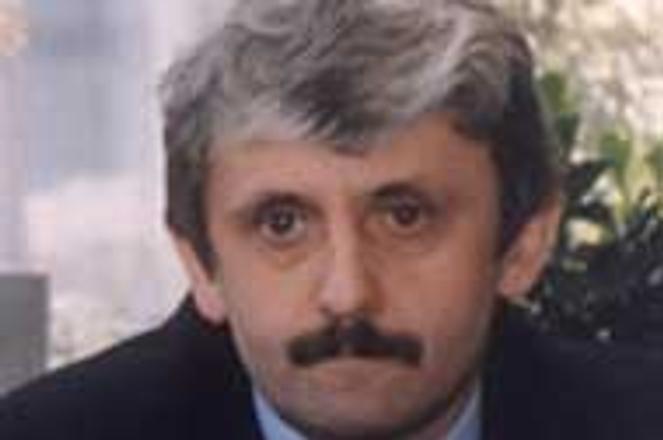Mikuláš Dzurinda flanked his opponents by launching a new party.foto: Vladimír Hák
Prime Minister Mikuláš Dzurinda touched off a risky political offensive on January 17 with the announcement that he would form a new political party. The move was interpreted as a dramatic bid by Slovakia's leader to end bitter feuding within his SDK party and secure a political future for himself.
The new party will be known as the Slovak Democratic and Christian Union (SDKÚ), and according to Dzurinda will not be registered at the Interior Ministry until some time close to the 2002 parliamentary elections. Until then, the Prime Minister said, the SDK caucus would remain united, and would honour all of the promises it had made to voters and the other three parties of Slovakia's coalition government.
But political analysts and many of Dzurinda's SDK colleagues said the move was designed to achieve an entirely different objective - to divide and conquer his political rivals in the SDK, whatever the consequences.
The SDK was formed from five founding parties in 1998. In the aftermath of the 1998 parliamentary elections, several of the member platforms, principal among them the Christian Democrats under Justice Minister Ján Čarnogurský and the Democratic Party of Deputy Prime Minister Ivan Mikloš, began to seek ways to regain their former identities without breaking up the SDK caucus - a condition demanded by the other parties of government.
Tensions between Dzurinda, who insisted the SDK remain united, and the breakaway elements in the party remained high throughout 1999, as party members began to identify themselves either as SDK stalwarts or as adherents of one of the five member platforms.
According to political scientist Luboš Kubín of the Slovak Academy of Sciences, Dzurinda's latest gambit promised to destroy the SDK utterly, as party members would now be forced either to follow the Prime Minister into the new SDKÚ or remain with their mother parties.
"This was an autonomous decision taken by Dzurinda without informing the SDK's decision-making organs," said Kubín. "It will break up the SDK caucus - this will happen over time, and will be most visible in concrete voting patterns in parliament. But although the SDK began to break up a long time ago, now it is beyond help."
The death of the SDK was heralded by the signatures attached to the declaration to form the new SDKÚ. Among the 10 senior SDK names to be found on the document are Foreign Minister Eduard Kukan, Culture Minister Milan Kňažko, Health Minister Tibor Šagát and Interior Minister Ladislav Pittner.
Although the first three signatories hail from the Democratic Union platform of the SDK, the leadership of the Democratic Union has said it rejects Dzurinda's move. Similarly, while Pittner and signatory Ivan Šimko are from the Christian Democrats, the leadership of that platform has also said it will not follow Dzurinda into the SDKÚ. The same is true of the three smaller SDK platforms.
The SDK member parties have not taken Dzurinda's action kindly, with the Democratic Party's Peter Tatár and the Christian Democrats' František Mikloško declaring their colleagues would no longer participate in SDK caucus work or sign further coalition government agreements.
As The Slovak Spectator went to press, it was still unclear how many of the SDK's 42 members of parliament would follow Dzurinda. Šimko said the issue was "still at the stage of negotiation," but political observers put the number of SDK faithful at about 20.
Kubín said the Prime Minister's offensive against his own party was a strategy fraught with risk. "From Dzurinda as Prime Minister this was a poorly though-out step, which can endanger his post and his support," Kubín said. "It also puts a strong card in the hands of the opposition parties, especially now that they have signed an agreement to cooperate."
Kubín added that it was still far from sure that Dzurinda had carried the day, and that the Prime Minister remained in desperate need of support from powerful figures such as Deputy PM Mikloš. "Mikloš is the only politician that Dzurinda publicly challenged to join him, and the decision will be very tough for him," he said.
Mikloš has so far refused to indicate where his loyalty lies, although in a December 14 interview with The Slovak Spectator, he said that given a choice between the SDK and his Democratic Party (DS), "I'm a DS man."
The other coalition government parties have also been careful in their response to the SDK situation, with SDĽ party boss and parliamentary speaker Jozef Migaš saying after a senior government meeting on January 18 that "the SDK remains our partner, and has guaranteed that its caucus will remain united. The government parties have accepted this guarantee from Dzurinda, and will continue as they have so far."
Kubin agreed that as ugly as relations became in the SDK, party members were unlikely to break the coalition agreement signed with the other government parties in 1998.
"The priority remains the coalition agreement and the government programme, which so far no one has attacked," he said. "At the January 18 coalition council meeting, Dzurinda guaranteed the SDK would remain the SDK until the elections. Most likely they will not cross this line, because it would be the end of the government."




